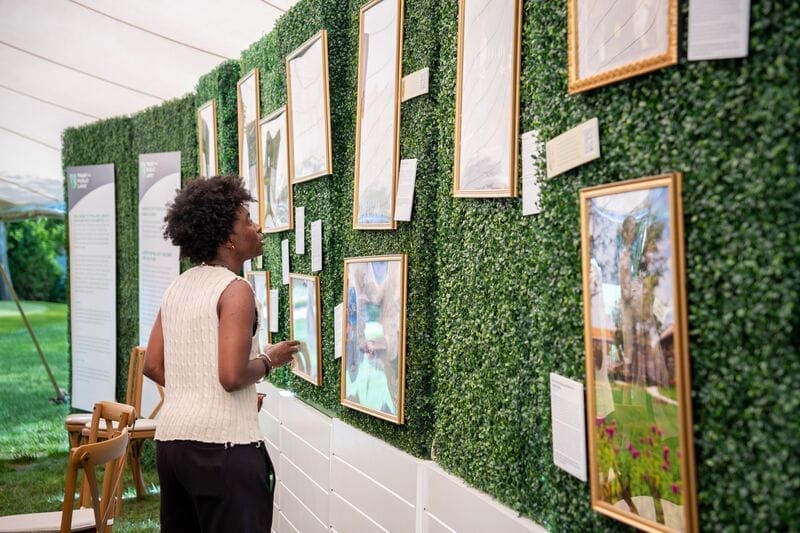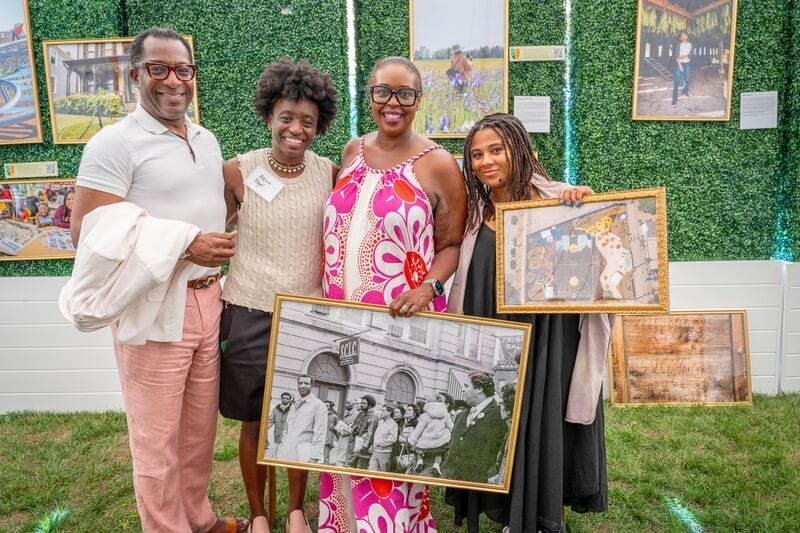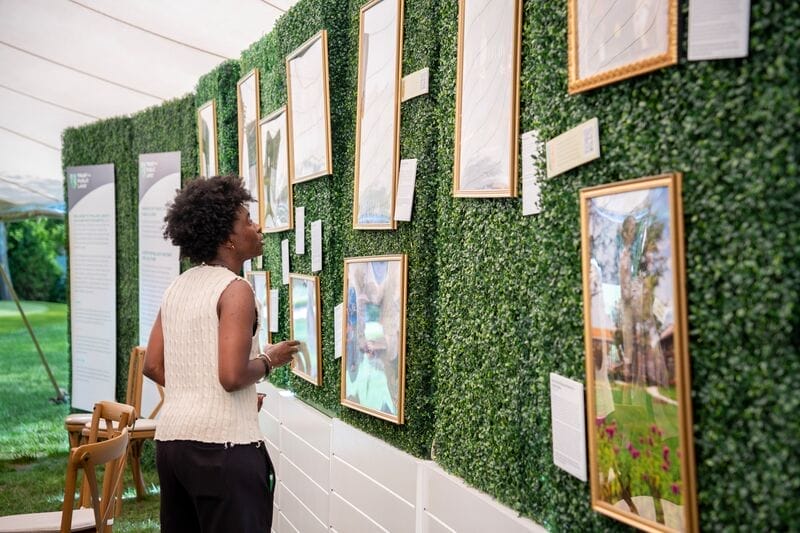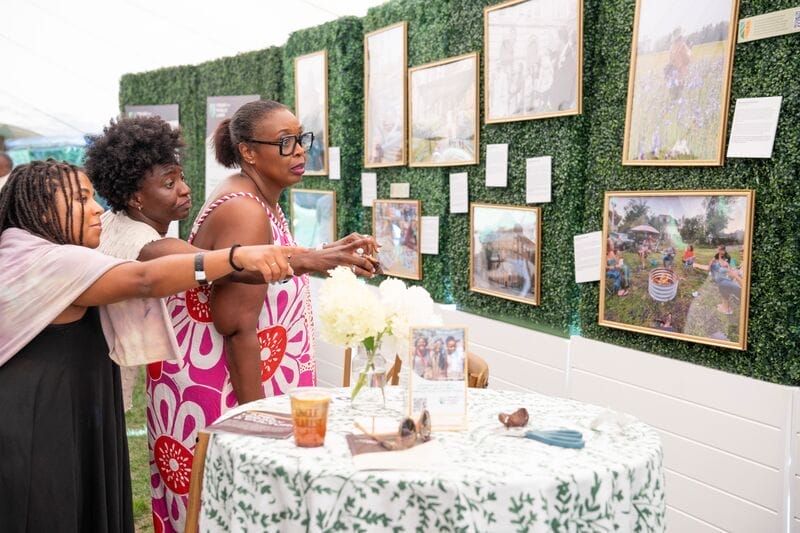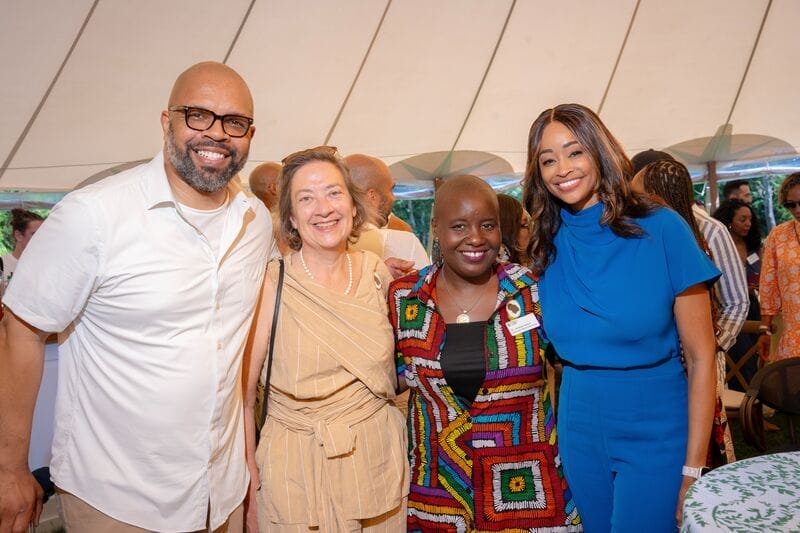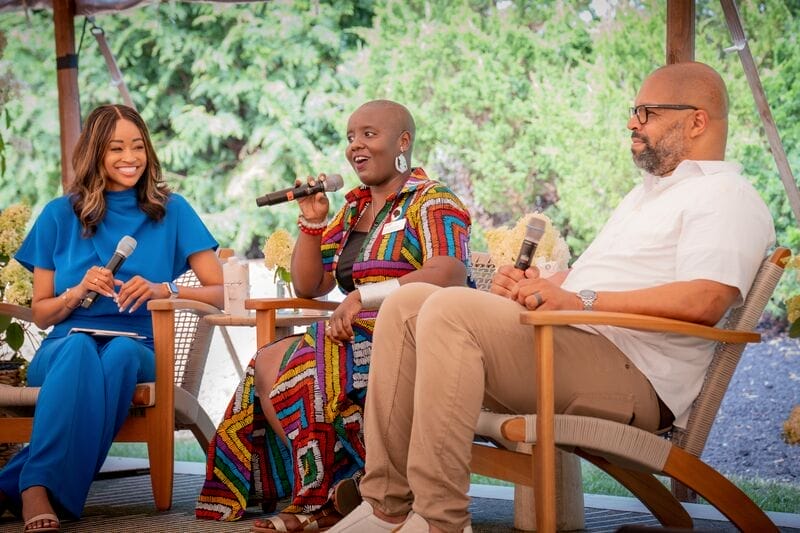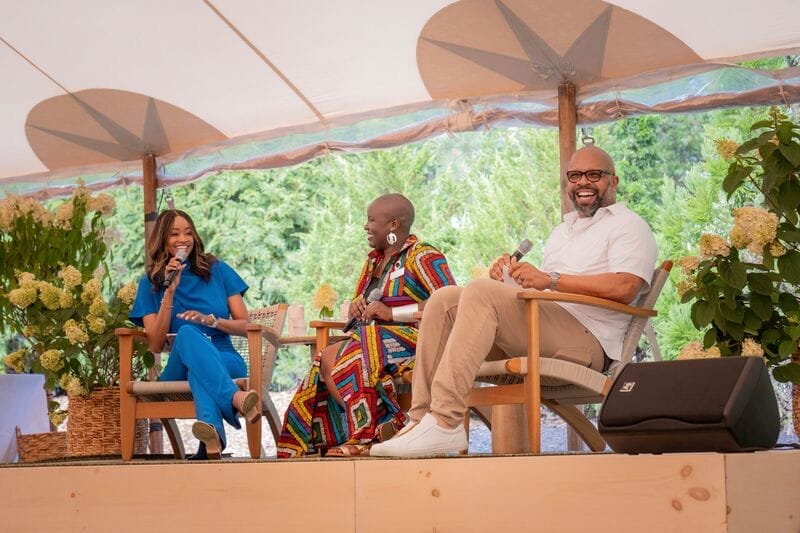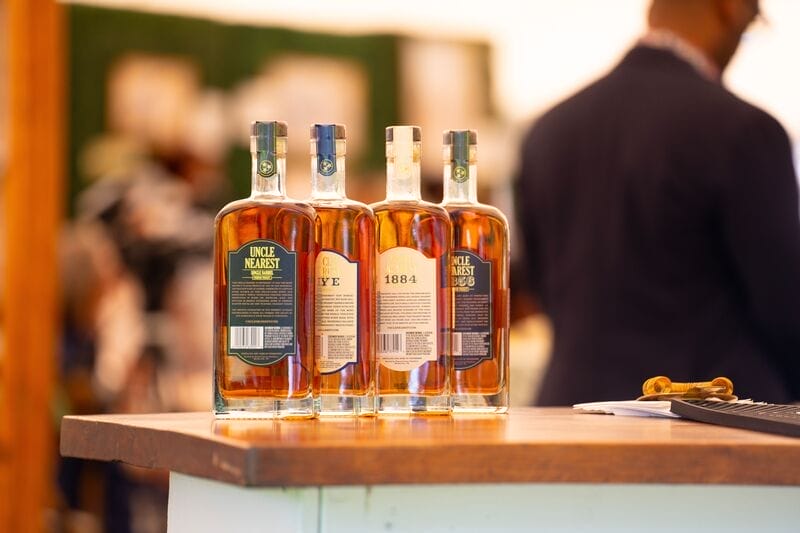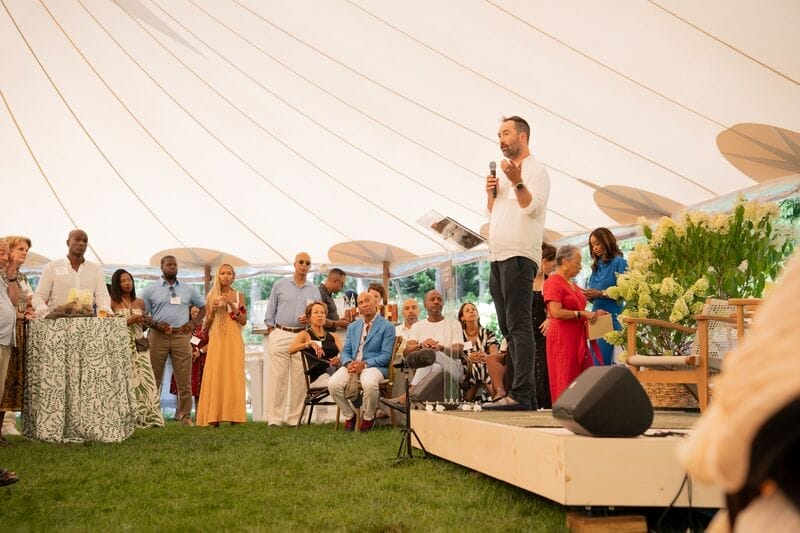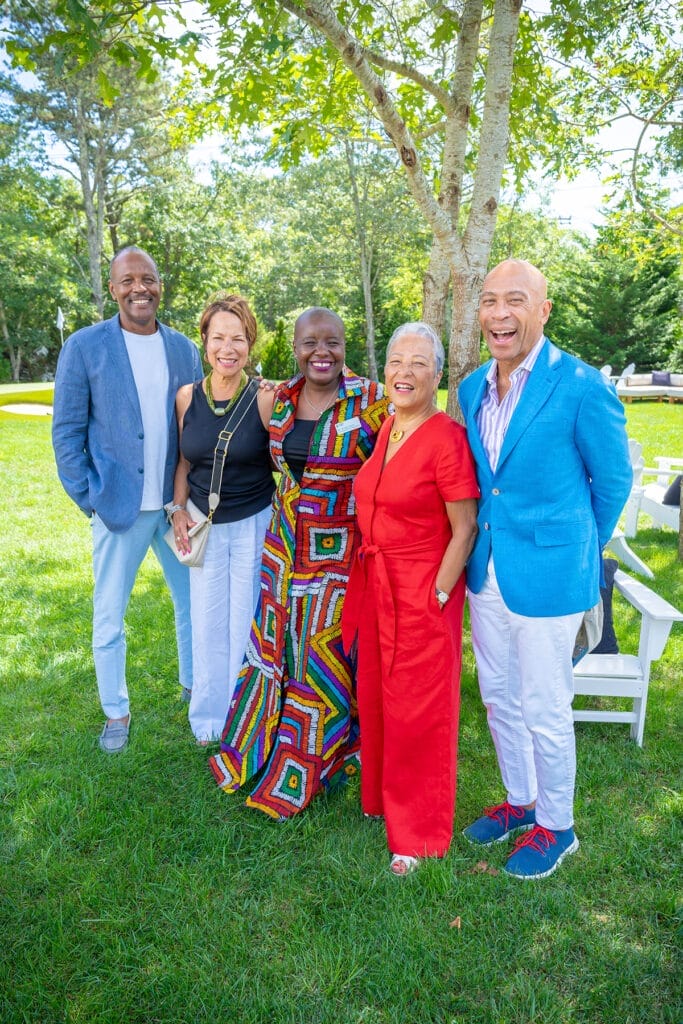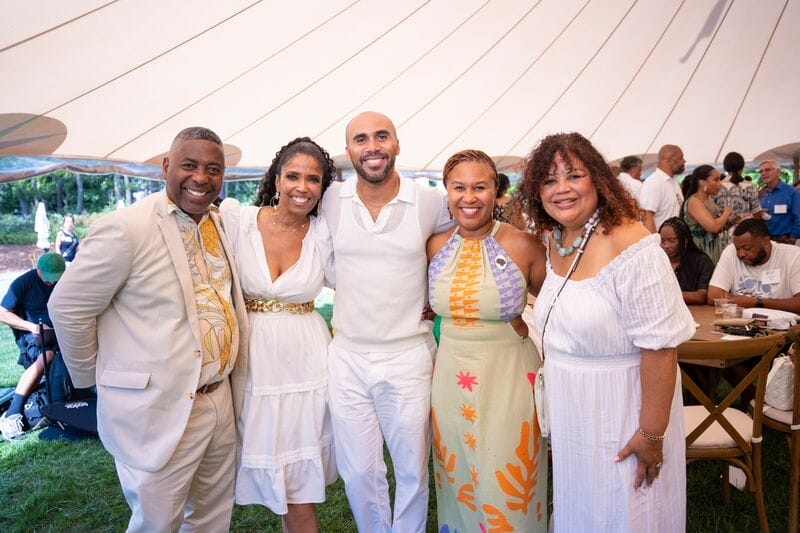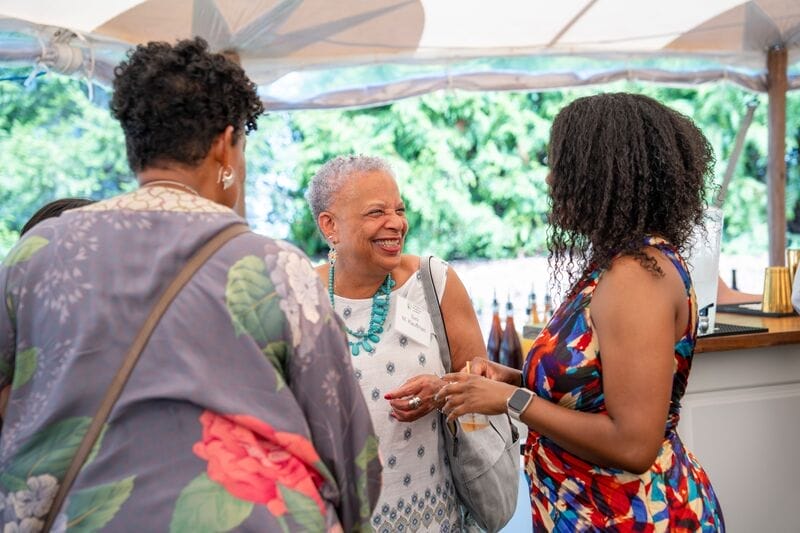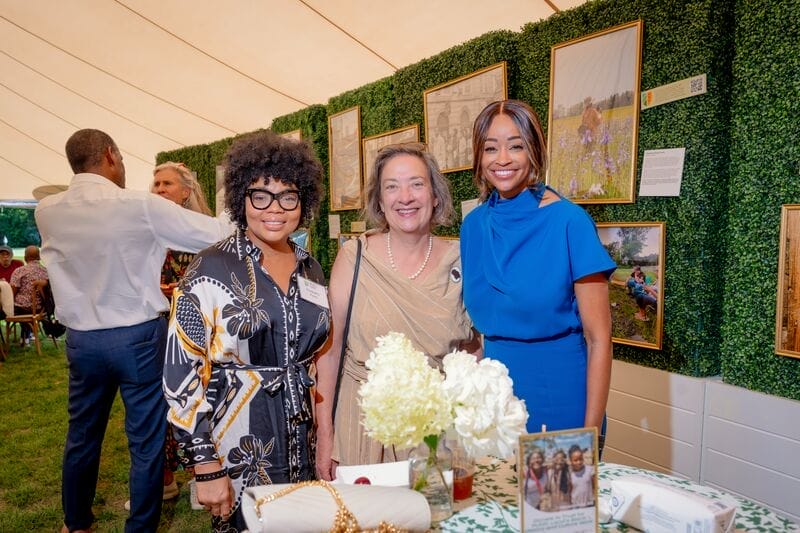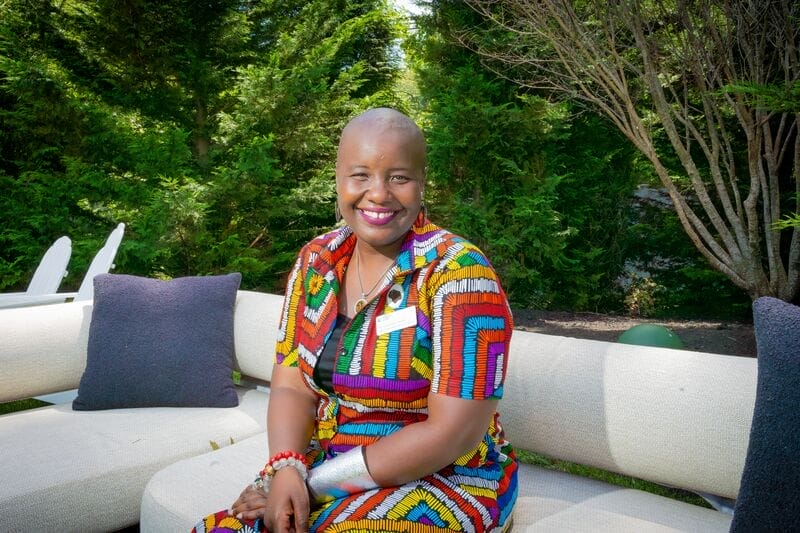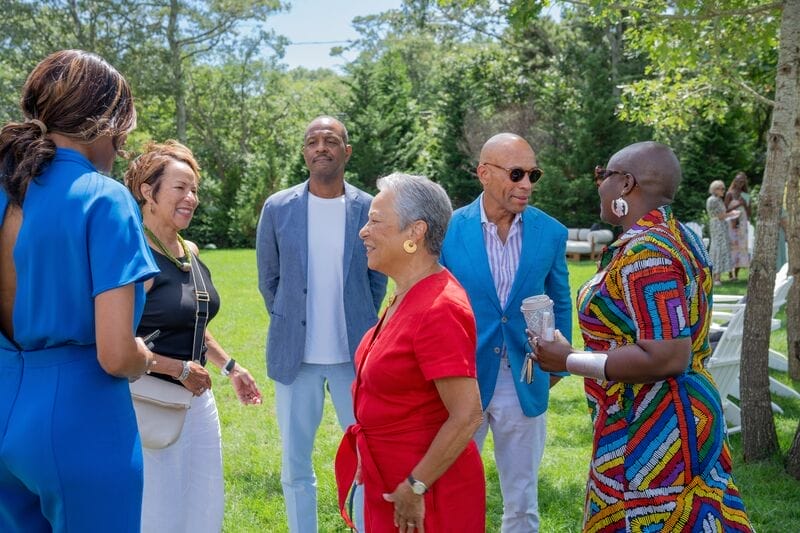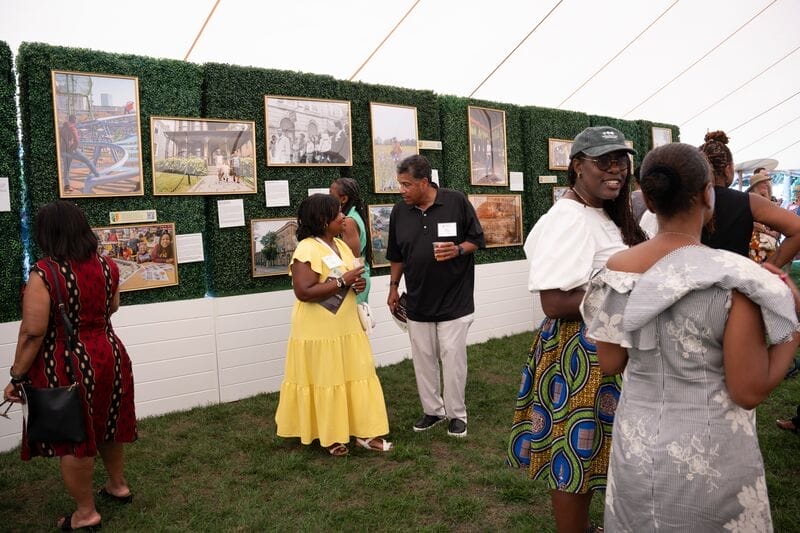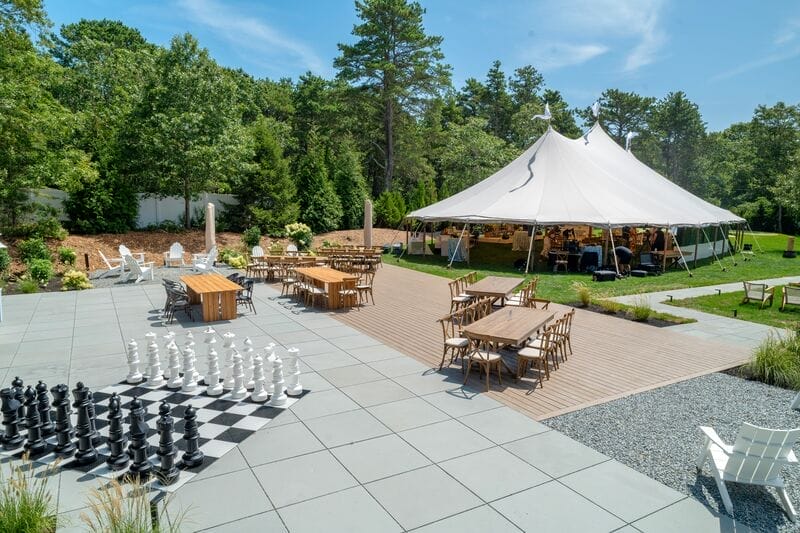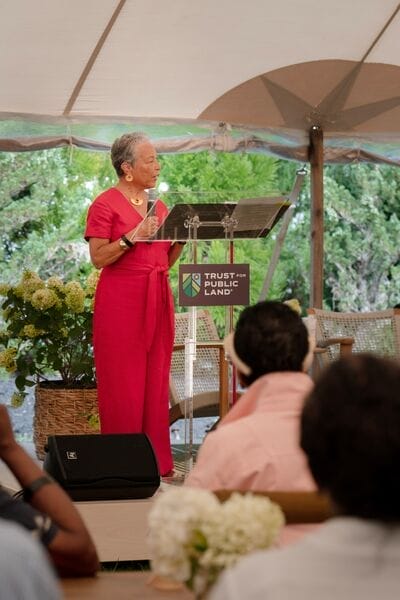On a breezy Friday afternoon in August, Martha’s Vineyard became the epicenter of a powerful gathering dedicated to advancing Black history and culture. Trust for Public Land (TPL) convened an intimate yet impactful fundraiser that brought together some of the movement’s most influential voices to ensure public lands benefit Black communities by preserving and uplifting their histories, legacies, and cultures across America’s landscapes.
From the outset, the significance of the event was clear. Co-Founders of Uncle Nearest Whiskey, Keith and Fawn Weaver, our hosts for the event, opened the gathering with heartfelt words, sharing their personal connection to TPL’s Black History and Culture program. Their story set the tone for the day, emphasizing the profound importance of community and the collective effort to protect and promote Black cultural sites.
“We are here because Black history matters,” said Keith Weaver, who also serves as a distinguished member of TPL’s National Board and Chairs the Black History and Culture Advisory Council. “The work that TPL is doing has huge impact, and great need.”
Diane Patrick, former First Lady of the Commonwealth of Massachusetts, took the stage next. Her remarks were a poignant reminder of the current challenges facing our nation.
“Black history and culture is under attack across the United States,” Patrick stated. “We know there are efforts to erase our history from textbooks, from curriculum in our schools, from discussions in our universities, from shelves on public libraries, and from training in our organizations and universities and businesses.” She continued, “Trust for Public Land’s efforts to highlight and reinforce that history through preserving public land is far from the only solution, but it is surely a critical part of the solution.”
The centerpiece of the event was a moderated conversation with Keith Weaver, Dr. Jocelyn Imani, and Emmy award winning CBS journalist Alecia Reid.
Dr. Imani, TPL’s national senior director of Black History and Culture, provided an insightful overview of the program. “Number one, we start with self-determination. These communities know what they need. People know what they need. We just have to give them access to resources to get what they need to build the world they want to see. So we’re thinking about significance. How does this story play into the larger national mosaic?”
Keith Weaver echoed this sentiment, emphasizing that TPL’s mission is fundamentally about land for people. “Around 83 percent of the people TPL serves are communities of color. One in three people who benefit from TPL’s work are Black – it is our mission.”
Throughout the conversation, the panelists shared inspiring stories of transformation. One notable example was the Forks of the Road site in Natchez, Mississippi. Once the site of the second largest illicit trafficking site of enslaved African Americans in America, this site was transformed into a place of remembrance and education, now part of the National Parks system thanks to TPL’s efforts.
“I look at the representation of our projects,” Weaver recounted, when asked what kept him going in the work, “I think a lot about where do people, projects, and circumstances need help, and what areas can I focus on that are lesser know that need resources, that need power, that need voice.”
Another compelling story came from Dr. Imani, who spoke about the Oak Cliff neighborhood in South Dallas. Once devastated by redlining and neglect, Oak Cliff is now undergoing a renaissance thanks to local leaders like Taylor Toynes, founder of For Oak Cliff. Trust for Public Land closely partners with For Oak Cliff on efforts like South Oak Cliff Renaissance Park and the ambitious Five Mile Creek Greenbelt, which are transforming the area for hundreds of thousands of residents.
“If you’ve ever been to a church picnic in the park, family reunion, a cookout…hip hop was created on public land, Juneteenth was designed and celebrated on public land,” Dr. Imani explained. “It’s our birthright, it’s our heritage, it’s our legacy. So now our work is to make sure not whose stories are being told, but who’s at the table, deciding how those stories are told, how those lands are protected.”
Trust for Public Land’s Black History and Culture program ensures that Black communities benefit from public lands, parks, and cultural and historical sites by fostering community engagement, health, and equity. The program’s goal is to place Black communities at the center of creating and maintaining outdoor spaces that honor their legacy and provide them with vital resources.
The event featured additional projects TPL is working to advance nationwide:
Clemmons Family Farm, Vermont: TPL worked closely with The Clemmons Family Farm, Inc, a Black Arts and Culture Center in Charlotte, Vermont. The Center is a platform for Black visual, performing and culinary arts, culture, outdoor connection, and farming and spans six historical buildings, a residential house, and 128 acres of farmland, forests, and ponds. We are proud to have supported the protection of this site, and the legacy of the Clemmons family.
Sterling Street Sanctuary, Connecticut: In collaboration with local leaders, TPL transformed a blighted parking lot into a beloved community space with garden beds, a gazebo, and a labyrinth. This sanctuary now serves over 6,550 residents in Hartford’s Upper Albany neighborhood, providing a place for peace, purpose, and learning.
Atlanta, Georgia: TPL’s efforts in Atlanta include the restoration and incorporation of Atlanta’s Historic Prince Hall Masonic into the Martin Luther King, Jr., National Historical Park and the creation of Rodney Cook Sr. Park, a green space designed to mitigate flooding and provide recreational opportunities in the historically Black Vine City neighborhood. This park not only serves as a community hub but also as a model for climate resilience in urban areas.
Altgeld Gardens, Chicago, Illinois: Originally built for Black war industry workers, Altgeld Gardens has suffered from environmental racism and disinvestment. Trust for Public Land is working with local leaders to create the Hazel Johnson Memorial Greenway, providing climate and health benefits, safe routes, and green spaces for the community.
Dr. Imani encapsulated the spirit of TPL’s work with the concept of the “formula for repair.” This approach involves recognizing the historical injustices that have shaped Black communities and actively working to reverse these effects through strategic investments in public lands and community spaces.
“So, now, if you look around this room, we have the opportunity to work together to do something different,” Dr. Imani stated, “and we can create this formulate for repair so that instead of harm being perpetuated generation after generation, we can set in motion positive benefits generation after generation.”
Trust for Public Land’s Black History and Culture program is a testament to the power of community-led transformation. By placing Black communities at the heart of their efforts, TPL is helping to create spaces that honor history, foster community, and ensure that everyone can enjoy the benefits of public lands.
The gathering on Martha’s Vineyard highlighted the importance of this work and the collective effort needed to continue making progress. There is more work to be done, and you can be a part of this movement by donating to support TPL’s Black History and Culture program. When you donate, you will receive a custom-designed pin honoring your contributions and the legacy of Black History and Culture in the United States.

Donate to become a member, and you’ll receive a subscription to Land&People magazine, our biannual publication featuring exclusive, inspiring stories about our work connecting everyone to the outdoors.

